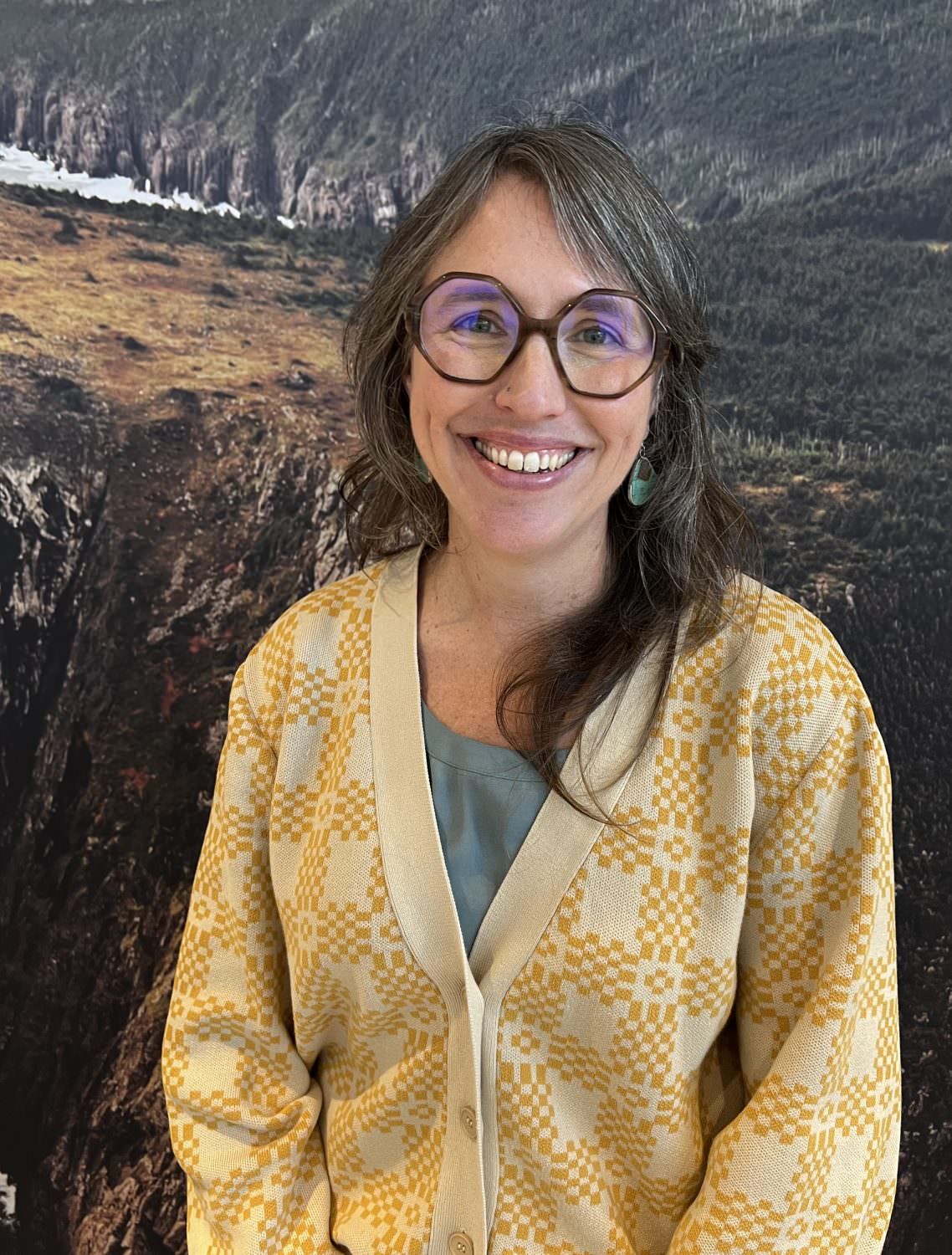Kelley Totten (she/her) is an Associate Professor at Memorial University of Newfoundland and Labrador where she teaches courses on material culture, museums, fieldwork, and folklore history. Her teaching, research, and service centers on community engagement and collaboration, and she currently leads Memorial’s Field School, serves as chair of MUN’s Folklore and Language Archive, and is completing her term as Exhibits and Events Reviews Editor for JAF. Her research on craft has spanned from craftswomen in the Mantaro Valley of Peru to knitting groups in prisons to her ongoing work on craft at folk schools. She is currently working with the John C. Campbell Folk School as the curatorial consultant for their log cabin museum project and has a book project under contract with UNC Press, “The Folk School Experiment: Radical Adaptations to Education in the Mountain South.” Kelley earned her M.A. in Folklore from the University of Oregon and her PhD from Indiana University. She thinks baskets hold all the answers.
Statement of Candidacy:
It is difficult to assess the field in 2024 outside of the context of the recent US elections, multiple hurricanes devastating the Southeast, and ongoing global crises around the world, particularly with our Ukrainian, Palestinian, and Israeli colleagues. Individuals’ physical, emotional, and cultural safeties are at risk, and as folklorists, I believe, we are tasked with the question: ‘what does our work do? can our work help?’ At our best, we are listeners. We pay attention. We work together. Our gathering in Albuquerque provided a beam of light to remind me of the breadth and potentialities of folklorists’ work. The challenges we face in the world affect the work we’re able to do individually and collectively, yet they also give us common cause and motivation. While AFS cannot solve these crises, we can pay attention and listen to our colleagues and communities at risk. We can support all of our institutions – public, academic, and scrappy (redundant in most cases). We can recognize and acknowledge the struggles of students and colleagues in precarious positions faced with the realities and effects of these challenges. The AFS Board is limited in its physical resources, but I have met enough folklorists over the years to know that we are powerful in our visions of humanity and our creative problem solving. If selected for the nominating committee, tasked with the great responsibility of imagining our futures together, I want to listen and pay attention: who is doing good work? Who has creative ideas and strategic visions? Who is ready and able to help?
